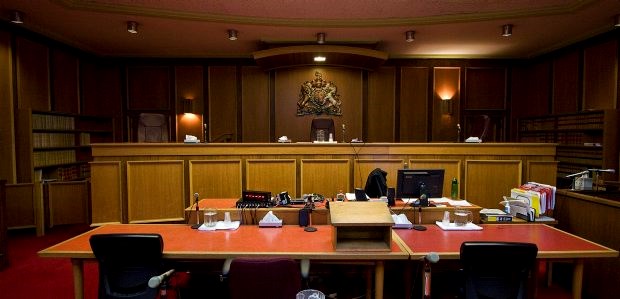The shortage of provincial court judges in B.C. has resulted in two more impaired driving cases being stayed due to delays in the past five weeks.
On Sept. 29 and Oct. 8, the Victoria provincial court granted stays after lawyers argued that delays of more than 12 months in getting their clients to trial breached their rights under the Charter of Rights and Freedoms.
The Crown also allowed two other defendants charged with impaired driving to plead guilty to reduced charges under the Motor Vehicle Act because of delays.
In addition, on Oct. 22, Judge Ernie Quantz was forced to adjourn an impaired case -- risking that the charge would be stayed -- because his court was overbooked. "This is a regrettable situation that I'm faced with far too often," Quantz said at the time.
"The court is a minimum of two judges below what is required to keep pace with the number of new cases coming in. If we were to schedule cases the way we did prior to the shortage, I'm confident we'd be booking trials now in 2012."
An investigation by the Times Colonist found the shortage of provincial court judges in B.C. has reached crisis levels, with criminal trials being delayed up to two years and courtrooms closed because no judge is available. In September, Attorney General Mike de Jong appointed five new provincial court judges. One was appointed to the north Island. But no new judge was appointed to ease the shortage on the south Island.
De Jong has indicated he is working with the judiciary to solve the problem. He was not available for comment.
The Times Colonist also found an increase in the length of time it takes cases to get to trial on southern Vancouver Island. First trial dates are being set 12 months after a person first appears in court, said Victoria defence lawyer Michael Mulligan. "Even if you act as quickly as possible, you're currently outside of the guideline of eight to 10 months deemed acceptable by the Supreme Court of Canada," said Mulligan.
The Supreme Court has made it clear that if a trial has not been set within 10 months after a first appearance, an inquiry should be made into whether the delay is reasonable, said Mulligan. "Virtually every new case in Victoria could be subject to an inquiry."
Defence lawyer Mayland McKimm said he has had three cases stayed in the last year. Last week, he was successful in reducing an impaired driving case to a traffic ticket.
"I would describe the judge shortage in the Victoria provincial court as acute," he said.
Paul Pearson, co-chairman of Victoria's criminal section of the Canadian Bar Association, said the public's perception of the justice system is corroded when people alleged to have committed serious crimes have matters dropped because of delays.
But innocent people are also caught up in the overloaded system, he said. "People have to realize these aren't people getting off on a technicality. These are living, breathing people who are stressing and losing sleep and having their lives placed on hold because of these charges."
On Sept. 29, lawyer Andrew Tam successfully applied for a stay on an impaired driving charge after his client endured an 18-month delay. "The wait was a living hell for him," said Tam. "He had family issues and was going through a divorce. He
didn't know what job he could accept because he didn't know if he would have a driver's licence."
On Oct. 8, Mulligan was also successful in having charges stayed in an impaired driving case. He told court about how his client had been fired from his job in the insurance industry after he was charged with impaired driving in August 2009. The man left town to find work, but word spread about the charge he was facing and he was unable to get work.
He retrained for other employment. A first trial date was set for June 16, but the Colwood courthouse was closed that day because no judges were available. Another date was set for trial in September.
"In the meantime, he had to tell prospective employers about this outstanding case. Two would not hire him because of the outstanding charge," said Mulligan. "So losing his job, moving, retraining -- it gives you an idea what someone can go through when they're waiting around for their trial."
ldickson@timescolonist.com



